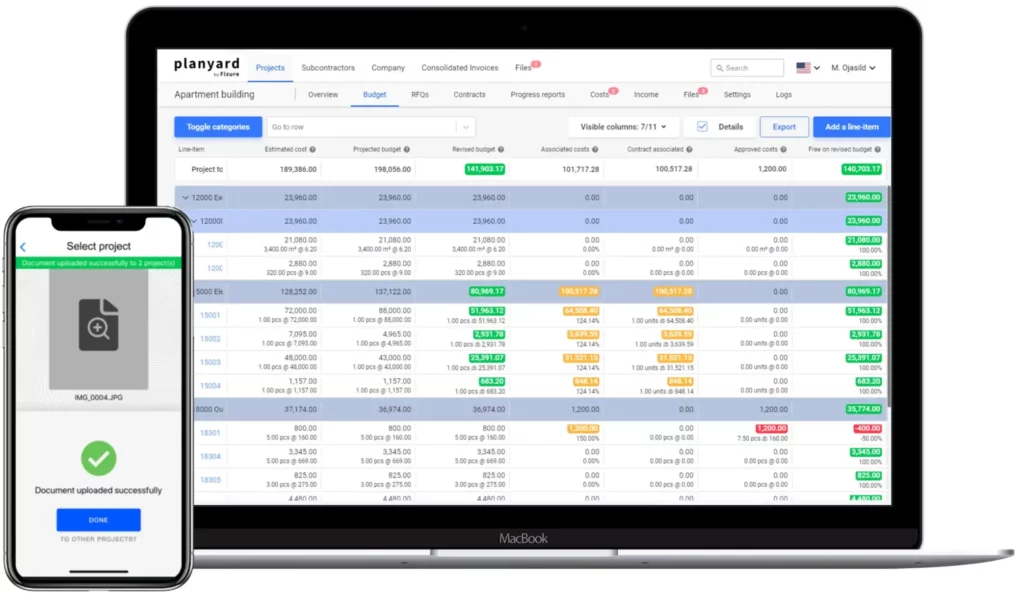Construction Project Management Software: Improve Effectiveness and Partnership
Construction Project Management Software: Improve Effectiveness and Partnership
Blog Article
Tailored Construction Monitoring Software Application: Optimizing Resource Allotment and Budgeting Methods
In the realm of modern-day building and construction administration, the relevance of tailored software application solutions can not be overemphasized. These innovative devices provide a nuanced method to enhancing source allotment and budgeting techniques, essential parts for effective project implementation. By delving right into the ins and outs of exactly how such software can boost resource allocation approaches and fine-tune spending plan optimization methods, a clear pathway towards heightened task performance emerges. In this digital age where accuracy and efficiency preponderate, checking out the impact of customized construction monitoring software on these vital aspects discovers a realm of opportunities that might form the future of the market.
Advantages of Tailored Software Program Solutions
Tailored software application solutions offer a myriad of benefits to building and construction management companies seeking to enhance effectiveness and streamline operations. One crucial advantage is the customization of features to line up with the certain demands of the building and construction sector (construction mangement software). By customizing software options to attend to project management, scheduling, budgeting, and source appropriation, companies can maximize their workflows and achieve higher efficiency. Furthermore, customized software allows for seamless integration with existing systems, minimizing the requirement for hand-operated information access and lessening mistakes.
Another benefit of customized software application solutions is the capacity to supply real-time insights and analytics. Construction monitoring firms can utilize data-driven decision-making to keep an eye on job progress, recognize traffic jams, and make adjustments promptly. This aggressive method boosts task outcomes and helps companies stay on track with timelines and budget plans.

Boosted Resource Allowance Methods
Implementing efficient source allocation approaches is essential for construction management firms to optimize task end results and maximize efficiency. By leveraging building management software that offers real-time monitoring and reporting attributes, firms can dynamically adjust allotments as project needs advance, leading to boosted effectiveness and cost-effectiveness. construction mangement software.
In addition, boosted resource appropriation techniques enable construction companies to determine and address possible bottlenecks or source constraints proactively. By conducting normal assessments of source use and performance metrics, supervisors can make data-driven decisions to rearrange resources effectively and stop delays. This aggressive method not just improves project timelines however likewise reduces the threat of budget plan overruns as a result of inefficient source allotment.
Spending Plan Optimization Methods
To attain ideal economic effectiveness in building and construction jobs, reliable budget optimization methods play a pivotal duty in guaranteeing price control and project success. One crucial strategy is the establishment of a thorough project budget plan that allots resources based on top priority and crucial requirements. By plainly defining the range of job, setting sensible cost estimates, and constantly surveillance expenses, construction managers can recognize possible cost overruns at an early stage and take rehabilitative activities. In addition, implementing value engineering methods can help improve job prices without endangering top quality. This involves evaluating each job element to determine possibilities for price financial savings while keeping efficiency criteria. Furthermore, leveraging historical data and industry benchmarks allows construction managers to make educated decisions about budget allotments and identify areas where spending can be optimized. By integrating these budget optimization strategies right into building management software, task stakeholders can boost monetary planning, source appropriation, and total budget plan administration to drive project success and productivity.

Influence on Project Performance
Optimizing building administration software program can significantly enhance project effectiveness by enhancing interaction, boosting cooperation, and facilitating data-driven decision-making. Additionally, construction management software application can offer useful understandings with information analytics, allowing project managers to make informed decisions quickly and properly.
Moreover, the automation of regular jobs such as organizing, spending plan monitoring, and source allowance can maximize important time for project teams to concentrate on critical activities, inevitably quickening task distribution. The ability to keep an eye on job development in real-time and identify potential traffic jams makes it possible for positive problem-solving, avoiding issues from rising and triggering delays. Overall, the influence of customized building management software program on job performance is indisputable, providing a competitive benefit by optimizing operations and maximizing performance.
Future Trends in Building Software
As the building and construction construction mangement software market continues to progress, developments in modern technology are shaping the future landscape of construction software application solutions. One substantial trend coming up is the raising combination of artificial knowledge (AI) and artificial intelligence capabilities in building and construction software. These modern technologies have the potential to reinvent how building tasks are managed by making it possible for predictive analytics, automated decision-making processes, and boosted project insights.
An additional future trend in building software application is the expanding emphasis on cloud-based options. Cloud modern technology provides boosted adaptability, scalability, and ease of access for building groups, enabling real-time collaboration and data sharing throughout task stakeholders. This change towards cloud-based software application is anticipated to boost task efficiency, improve interaction, and boost overall job results.
In addition, the surge of Building Information Modeling (BIM) is expected to continue shaping the building software program landscape. BIM software program facilitates 3D modeling, visualization, and data management, resulting in improved job sychronisation, decreased errors, and enhanced job results. Accepting these future trends in building and construction software will be crucial for business looking to stay competitive and drive development in the market.
Final Thought
In verdict, tailored building administration software application provides countless advantages such as boosted resource allotment techniques and budget plan optimization methods. This software program has a significant effect on job performance by improving procedures and enhancing total performance (construction mangement software). As modern technology remains to advancement, future fads in building software are expected to more optimize resource allowance and budgeting approaches for construction tasks
Report this page